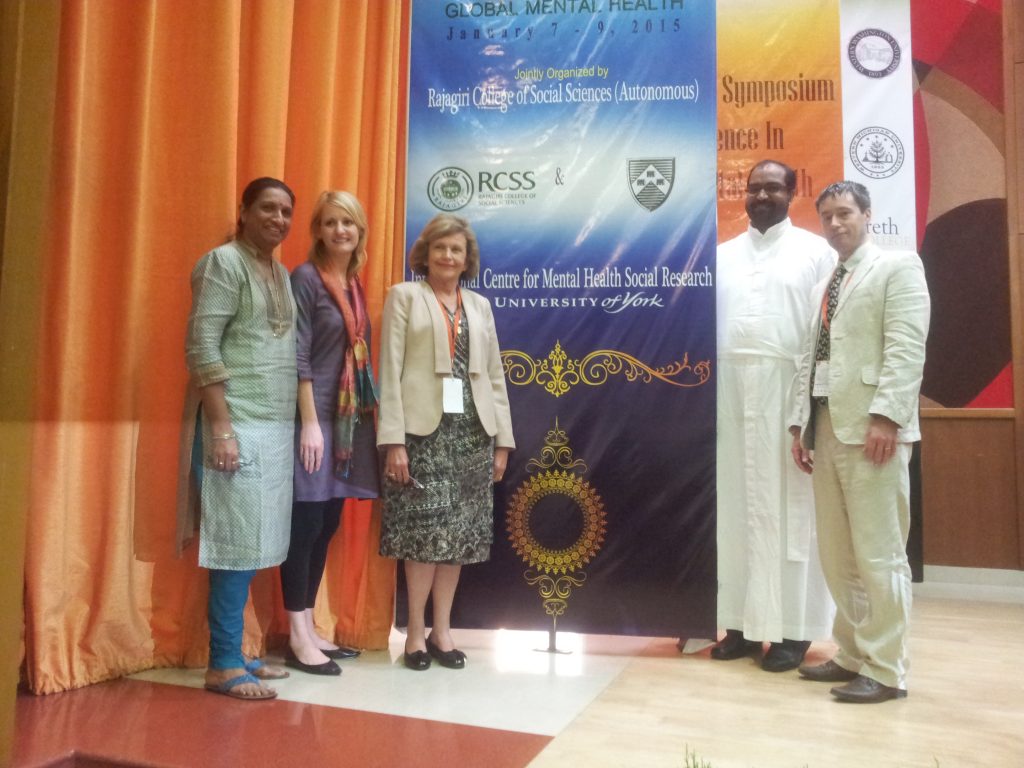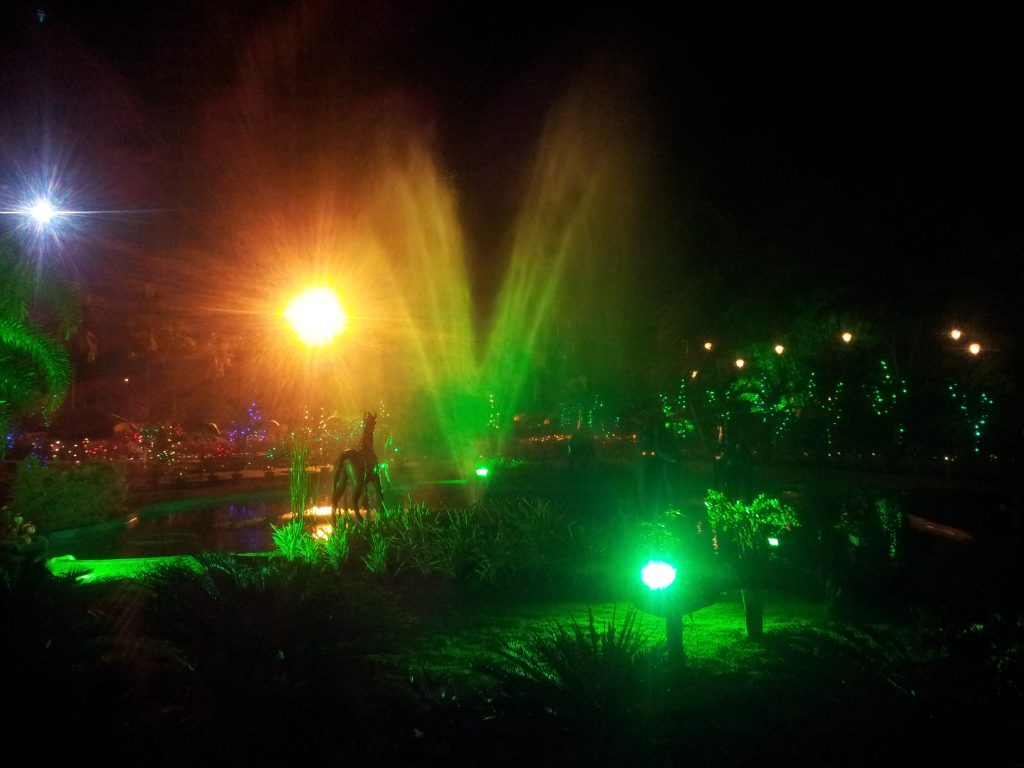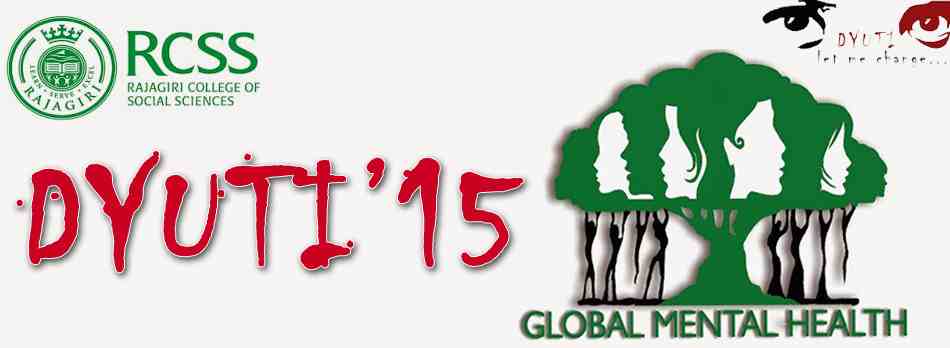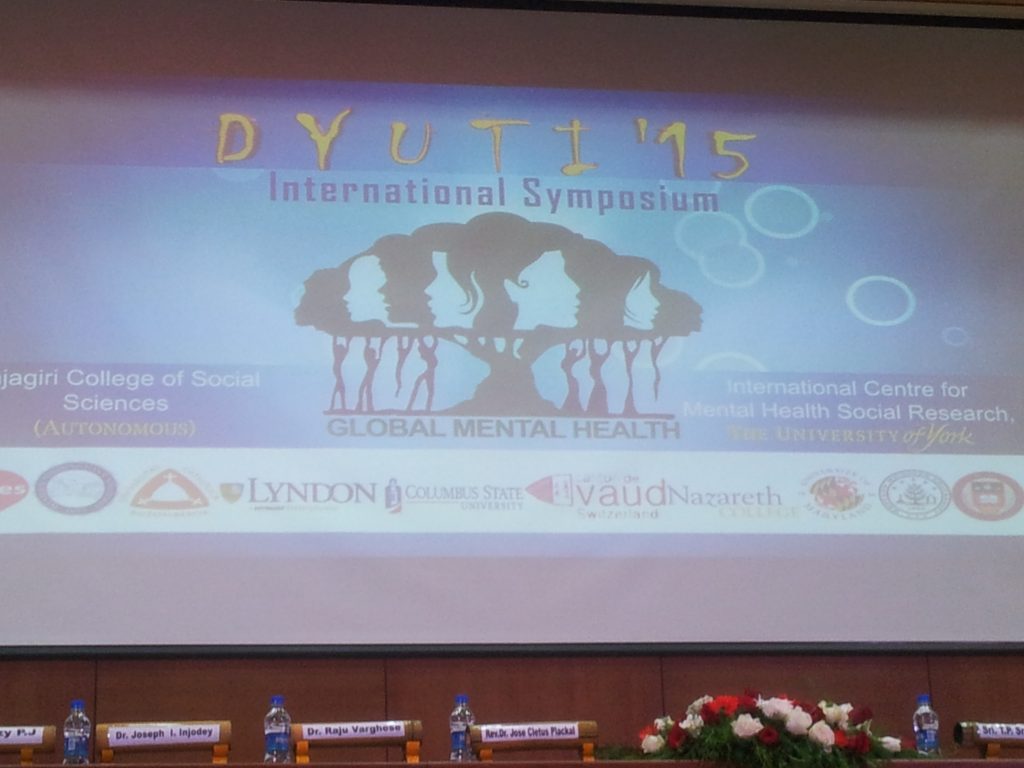I’ve spent the last week in Cochin in the state of Kerala, India, with colleagues from the International Centre for Mental Health Social Research (ICMHSR). ICMHSR brings together researchers from the University of York with
I’ve spent the last week in Cochin in the state of Kerala, India, with colleagues from the International Centre for Mental Health Social Research (ICMHSR). ICMHSR brings together researchers from the University of York with those around the world to develop a programme of research which has the potential to influence mental health policy and practice both nationally and internationally. This week we have held an international conference in India on evidence in global mental health with a particular focus on the role of social work.
Memories of 2010
This was my second visit to India. My first, back in 2010, was to co-facilitate an intensive research methodology workshop for social workers, nurses and researchers. It was organised by Fr Saju Madavan of the Rajagiri College of Social Sciences, who is now a collaborator in ICMHSR. I have many fond memories of that trip and it produced my favourite teaching anecdote about the synergy of research and teaching.
In one of the workshop sessions we taught the principles and practice of undertaking a randomised controlled trial (RCT). As it was an afternoon session on the third day in a hot room we decided that the group needed to undertake some activity to maintain their attention. We used this as an opportunity to demonstrate how RCTs are conducted.
We divided the participants into two groups at random. One group (the control group) went for a slow walk outside for half an hour. The other group (the intervention group) participated in some lively exercises and games for the same length of time. We then continued with the teaching session on RCTs. A colleague carefully noted down how many people appeared to doze off during the session (our primary outcome measure).
During a break we analysed the data and presented it back to the group to illustrate how trial data is analysed. Our findings were that the group who participated in the lively exercises and games had a significantly reduced incidence of sleepiness during the session. Since then I have sought to keep students as active as possible during long teaching sessions to improve engagement and minimise the likelihood of anyone nodding off!
Returning to Kerala
On my return to Cochin in Kerala this week I noticed some changes since I was last there. The infrastructure in Cochin seemed to have improved. Road surfaces appeared smoother (though I may have been comparing them to Sierra Leone in my mind as I have been there more recently) and a new metro system is being built. Other evidence of new investment can be found in new hotels and apartment blocks which have sprung up since I was last there.
I also noticed this week that Kerala describes itself as ‘God’s Own Country’, an accolade Yorkshire also bestows on itself. Kerala certainly is very green with palm trees and nice beaches (though I haven’t been to any of them yet). But I’d suggest that there is no reason why both places can’t share the title as Yorkshire certainly deserves it too! I had very limited time to see anything of Kerala whilst I was there due to my work schedule, but I can certainly recommend it as a holiday destination. Keralans are very friendly and hospitable, and there are many fascinating places to visit. But before this turns into a tourist blog, let me come to the reason for this visit.
Working with colleagues in different time zones to develop research proposals for international social work research is challenging. We work best when sitting down in the same room together, but this is not often possible because of the cost, the difficulty of spending time away from home and family, and our other teaching and research commitments. The international collaborators in ICMHSR have not all met each other because I drew them together independently from different countries. This week, though, we’ve managed to bring some together who had not previously met.

I introduced Professors Lynette and Jacques Joubert from Australia to my colleagues Dr A.T. Jotheeswaran and Fr Saju Madavan from India and there was an immediate recognition of shared interests. We sketched out an action plan to undertake some pilot work in preparation for grant applications later in the year. We will be focusing on finding ways for social workers to support people in Kerala to manage long-term mental and physical health problems more effectively. We will draw on our experience in the UK, Australia and India to collaborate on new research which has the potential to have a positive impact on social workers’ practice and the local communities in which they are working in Kerala.
DYUTI 15
The context for our meeting was an International Symposium on Evidence in Global Mental Health which was organised by Rajagiri College of Social Sciences in Cochin, Kerala, in collaboration with ICMHSR. Led by ICMHSR collaborator Fr Saju Madavan, staff and students from the social work department at Rajagiri hosted an international meeting attended by about 250 people this week. This conference was part of their annual series of DYUTI (meaning ‘spark of life’) annual forums.
Rajagiri were superb hosts and attended to every detail to make both national and international delegates feel welcome. Every aspect of the visit including transportation, accommodation, food, visits, cultural and social activities were taken care of. Their hospitality was far superior to that provided by any international conference and quickly made us feel part of the Rajagiri family.
I have written in detail about the ICMHSR contribution to the conference on the ICMHSR blog. Although I wasn’t involved in any of the practical arrangements, I contributed to many of the sessions. This included giving an opening address on the role of social work in global mental health to set the scene for the conference; facilitating a workshop on scaling up mental health programmes; contributing to a plenary panel discussion on research priorities for social workers in global mental health; chairing a plenary session in which other ICMHSR collaborators gave papers; contributing to a plenary panel discussion on global mental health policy; and providing some take-home messages at the end of the conference.
The programme included papers of a quality found at other international social work conferences. Its focus on the social work role in addressing the ‘effective treatment gap’ (the difference between the number of people with a mental health problem and the availability of effective interventions) in low and middle income countries was important and unique. It raised the profile of global mental health among social workers and reminded the community of global mental health researchers that social workers have an important role to play.
Cultural programme
Any conference in India is not complete without a full cultural programme which is woven into the scientific programme. This included a concert of traditional Indian music; a bollywood style flashmob in the atrium of the conference venue (a reprisal of one the students did in Lulu shopping mall in Cochin on World Mental Health Day in October 2014); and a full evening of music and dance performed by the Rajagiri social work students. A boat trip at dusk for the international visitors – which was a cross between a karaoke and a rave – rounded off the conference in true Keralan exuberant style (I must confess, though, that I had to find a quieter place on the boat to discuss a research proposal rather than get my dancing shoes on as I didn’t want to embarrass my colleagues with my atrocious sense of rhythm!).
It’s been an intense week working 16-hour days for much of it, but hugely satisfying and important for the future of ICMHSR. It has helped to strengthen our partnerships, deepen our collaborative relationships and take our research plans forward. I’ve met many inspirational people who I hope to keep in touch with. Above all, it has provided an opportunity for social work students, practitioners and academics from around the world to discuss the increasing contribution which mental health problems make to the global burden of disease and the role which they can play.
I’d like to express my sincere thanks to Rajagiri College of Social Sciences for their hospitality and organisation of the conference. In particular, I’d like to acknowledge the contribution made by Fr Saju Madavan to the successful week. I hope that our research plans work out so that it won’t be another four years until my next trip to India!




Sounds like you’re having a ball and that the job is everything you hoped for BW Nick
Hi Nick,
Yes, it’s all going well. Our work with colleagues in India has taken a massive step forward with this trip, but there’s just so much to do!
Martin